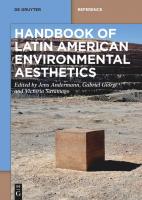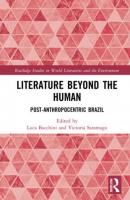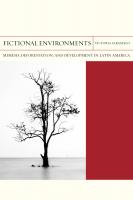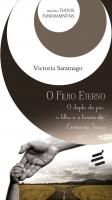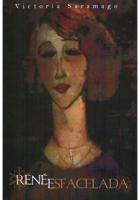I am an associate professor of Hispanic and Luso-Brazilian Studies at the University of Chicago. My research interests include twentieth- and twenty-first-century Latin American literatures and cultures with a focus on Brazilian studies, the environmental humanities, the energy humanities, the Great Acceleration and the Anthropocene, fiction theory, mimesis, and interdisciplinary approaches to literature and the environment.
My first monograph, Fictional Environments: Mimesis, Deforestation, and Development in Latin America, was published in 2021 by Northwestern University Press. Fictional Environments investigates how fictional works have become sites for the production of knowledge, imagination, and intervention in Latin American environments. It investigates the dynamic relationship between fictional images and real places, as the lasting representations of forests, rural areas, and deserts in novels clash with collective perceptions of changes like deforestation and urbanization. This book was the recipient of the Roberto Reis Book Award (Brazilian Studies Association, 2022), has received an honorable mention by the Antonio Candido Book Award (Brazil Section, Latin American Studies Association, 2022), and has been shortlisted for the Association for the Study of Literature and Environment Book Award in 2022.
My current monograph-in-progress, tentatively titled Against the Current: Electricity and Culture in Brazil, investigates the multiple ways through which Brazilian artistic practices have shaped perceptions of the production and consumption of electrical energy and, inversely, how electricity has enabled, impacted, and occasionally destroyed cultural objects. It argues that, far from merely praising electrification as a door to modernity, artists across the decades have addressed this process in a highly critical, skeptical, and ironic fashion, thus providing a powerful critique of the developmentalist paradigm that persisted across generations in twentieth-century Brazilian politics. This project has been funded by a year-long fellowship from the National Endowment for the Humanities and has received additional funding from the Franke Institute for the Humanities.
I have co-edited two books. The Handbook of Latin American Environmental Aesthetics (De Gruyter, 2023), co-edited with Jens Andermann and Gabriel Giorgi, offers a comprehensive overview of Latin American aesthetic and conceptual production addressing the more-than-human environment at the intersection between art, activism, and critique. A winner of the ASLE Subvention Grant, Literature Beyond the Human: Post-Anthropocentric Brazil (Routledge, 2022), co-edited with Luca Bacchini, is the first collection of essays in English dedicated to an investigation of Brazilian literature from the viewpoint of the environmental humanities, animal studies, Anthropocene studies, and other critical and theoretical perspectives that question the centrality of the human. I am also the co-editor of two special issues: O Antropoceno na perspectiva da análise histórica (Topoi: Revista de História, 2023), with José Augusto Pádua, and Narratives of the Apocalypse (Journal of Lusophone Studies, 2022), with Chloe Hill.
I am also the author of O duplo do pai: O filho e a ficção de Cristovão Tezza (É Realizações, 2013), and my articles have been published or are forthcoming in journals such as New Literary History, Novel: A Forum on Fiction, Revista Hispánica Moderna, and Luso-Brazilian Review, among others.
I have co-directed research projects such as “Fossil Capitalism in the Global South,” which was sponsored by the Neubauer Collegium in 2022-2023, and am currently co-director of the book series “SubAtlantic: Latin American, Caribbean, and Luso-African Ecologies” at De Gruyter.
Selected publications:
Books
Fictional Environments: Mimesis and Deforestation in Latin America. Evanston: Northwestern University Press, 2020.
O Duplo do Pai: O filho e a ficção de Cristovão Tezza. São Paulo: É Realizações, 2013.
Articles and Book Chapters
“The Rights of Nature, the Rights of Fiction: Mario Vargas Llosa and the Amazon.” Novel: A Forum on Fiction, v. 54, n. 1, 2021 (Forthcoming).
“Birds, Rivers, Book: Material Mimesis in João Guimarães Rosa’s Grande sertão: veredas.” Luso-Brazilian Review, v. 57, n. 1, 2020. pp. 125-149.
“Juan Rulfo leído por escritores y críticos latinoamericanos fuera de México.” Juan Rulfo: Guía crítica. Edited by Víctor Jiménez and Jorge Zepeda. México, D.F.: RM. 2018.
“TransatlanticSertões: the Backlands of Ruy Duarte de Carvalho and Mia Couto." Ecozon@: European Journal of Literature, Culture and Environment, v. 8, n. 1, University of Alcalá, Madrid, 2017. pp. 79-97.
“The Sailor and the Migrant: Discourses of the Capibaribe River in João Cabral de Melo Neto’s O Rio.” Letterature D’America, Anno XXXVI, n. 160, University of Rome “La Sapienza,” Rome, 2016. pp. 41-69.
Recent Courses in RLL
- PORT 21903 Brazilian Theater and Film (Winter 2017, Spring 2017, Winter 2022)
- PORT 24400 Afro-Brazilian Literature (Autumn 2025)
- PORT 25000/35000 and SPAN 25555/35555 The Amazon: Literature, Culture, Environment (Spring 2020, Autumn 2021, Spring 2023, Winter 2025)
- PORT 26810/36810 From Cannibalism to Tropicalism: Brazilian Avant-Gardes (Winter 2017, Spring 2021)
- PORT 27200/37200 Introduction to Brazilian Culture (Winter 2019, Winter 2021)
- PORT 27777/SPAN 27777/FREN 27777 Disrupting Environmental Narratives: Colonialism, Race and Toxicity (Spring 2026)
- PORT/SPAN 33400 Antropofagia, Transculturación, Heterogeneidad (Spring 2019)
- PORT/SPAN 33660 Literary Cultures of Contemporary Latin America (Winter 2020)
- PORT/SPAN 34110 Ecocritical Perspectives in Latin American Literature and Film (Autumn 2016, Autumn 2019)
- PORT/SPAN/FREN 42310 World Literatures in Dialogue: Latin American and Francophone Perspectives (Autumn 2020)
- RLLT 48000 Academic Job Market Preparation (Spring 2022)


